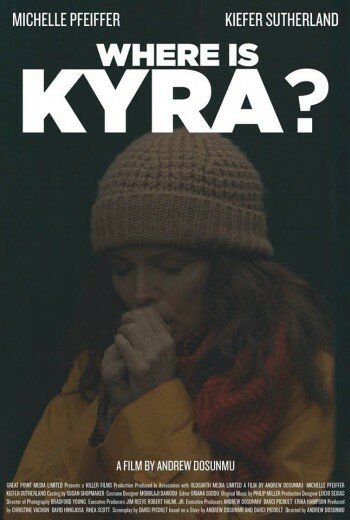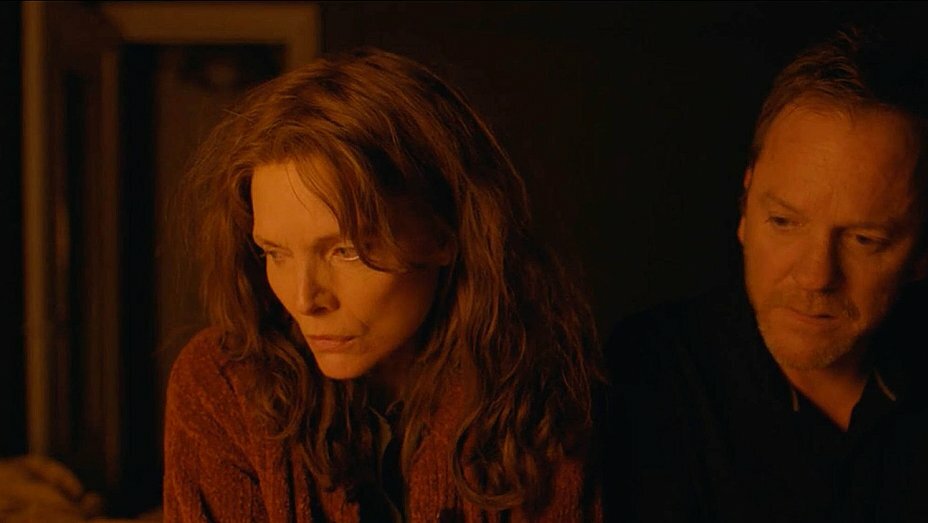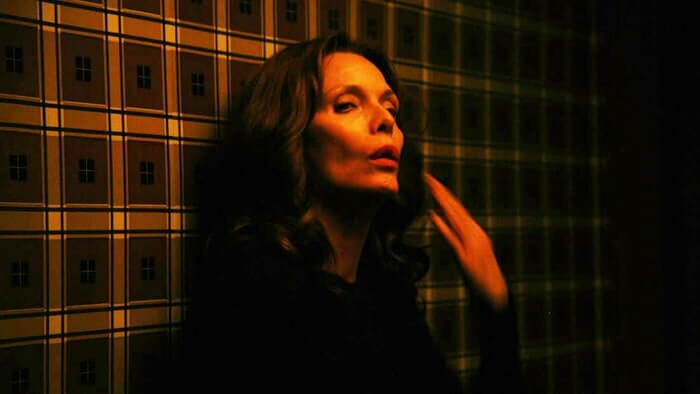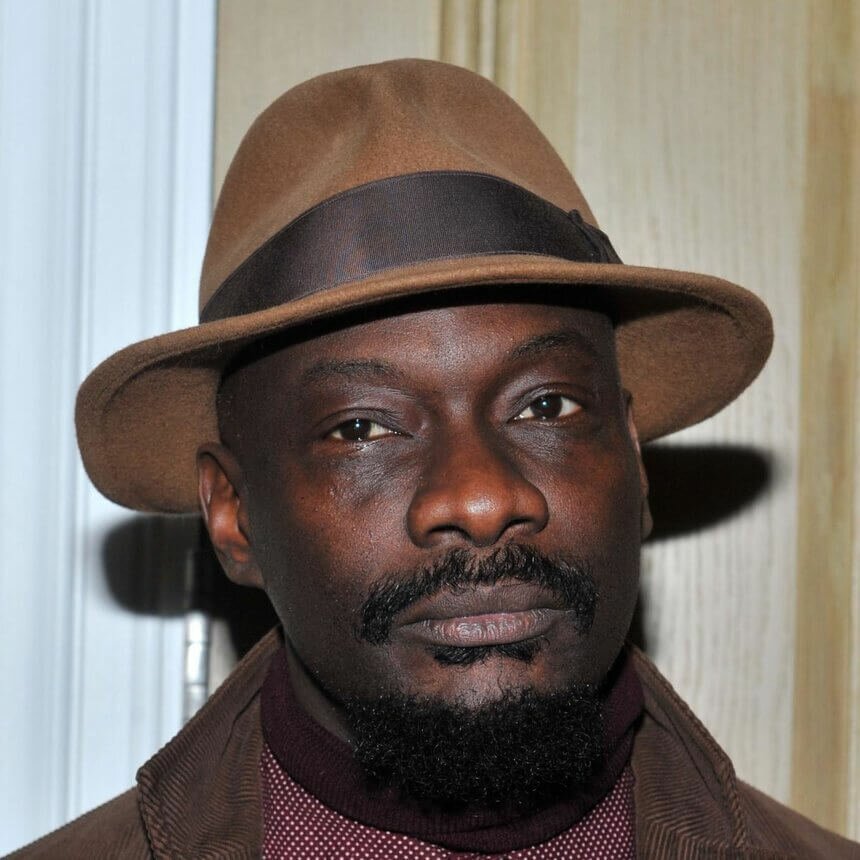BY NOAH TSIKA

Where Is Kyra? (2018), the latest film by Nigerian director Andrew Dosunmu, allegorizes the immigrant experience in ways that make it an apt companion piece to Dosunmu’s 2013 drama Mother of George. The new film may feature the American superstars Michelle Pfeiffer and Kiefer Sutherland, but its themes are firmly tied to the travails of Ayodele (Isaach De Bankolé) and Adenike (Danai Gurira), the Yoruba immigrants who struggle to adjust to life in Brooklyn in Mother of George, as well as to those of Djibril (Sy Alassane), who, born in Dakar, becomes a vendor on Canal Street in Dosunmu’s debut feature Restless City (2011). Steeped in what it means to be an African immigrant in New York, Mother of George and Restless City may seem far removed from the Pfeiffer-centered, Brooklyn-set Where Is Kyra?, but it is an indication of Dosunmu’s commitment to the theme of immigration—and with it the motifs of displacement, invisibility, and anxiety—that the director’s latest film feels as if it’s in active conversation with his previous two, forming a sort of trilogy of the exilic experience.
Unlike her African counterparts, Pfeiffer’s Kyra is an exile in the country of her birth—one of the millions of Americans painfully unable to make ends meet in an increasingly exploitative economic system that offers only low-wage, part-time employment. Divorced and living with her ailing mother, Ruth (Suzanne Shepherd), the fiftysomething Kyra relies on Ruth’s pension and disability benefits, without which, the film makes abundantly clear, she would barely be able to survive in the city. When Ruth, who suffers from emphysema, dies, Kyra attempts to find work but is stymied at every turn—including by the food service industry, which plainly prefers to hire much younger women to wait tables, their nubile appeal guaranteed to attract customers (and to earn them higher tips). Dosunmu doesn’t belabor the ageism with which Kyra must contend, or suggest that it is anything other than common in a city that so emphatically rewards youth and penalizes bitter experience.

That Kyra is played—quite brilliantly—by the spectacularly beautiful Michelle Pfeiffer is one of the film’s shrewdest elements, a stark reminder that it is often age alone that eliminates a woman’s chances of earning a living. Kyra’s struggle is, in fact, so harrowing (at one point, she is reduced to distributing flyers on the street—a barely compensated gig to which she yet desperately clings) that she is eventually forced to do the seemingly unthinkable: impersonate her deceased mother in order to continue to collect Ruth’s pension and disability benefits. The bureaucratic obstacles that propel her toward this extreme strategy are as convincing as Kyra’s inability to find a decent job: having written the wrong social security number on a crucial form, she is unable to correct her mistake. Soon, she is wrapping herself in Ruth’s clothes, clutching the dead woman’s cane and affecting a limp as she makes her way to the bank in order to collect some much-needed cash.

Distinguished by Dosunmu’s characteristically eccentric framing (achieved with the help of Oscar-nominated cinematographer Bradford Young, Dosunmu’s frequent collaborator) as well as by Philip Miller’s chillingly dissonant score (which recalls the metallic sounds of Mica Levi, especially in Jonathan Glazer’s 2014 film Under the Skin), the scenes in which Kyra, outfitted as Ruth, walks the streets of Brooklyn have an eerie, almost otherworldly quality that reminded me of some of the greatest, most outré Nollywood films—occult spectacles full of ghosts, doppelgängers, and evil spirits. As he demonstrated with the fertility drama Mother of George, Dosunmu is able to draw upon the Nollywood tradition while expressing a range of other influences. Kyra’s (literally) mortifying impersonation of her mother is itself a manifestation of the evils of advanced capitalism—of a political economy that turns everyone, Nigerians and Americans alike, into exiles in desperate search of a way out of an impossible, impoverished situation. Is Kyra’s transformative tactic not its own kind of 419 scheme—a means of squeezing some much-needed money out of a system that is equally corrupt?

References to Nigeria abound in Where Is Kyra?—a film whose title powerfully signals the shame that attends any effort to locate the protagonist in a precise national context. Where, indeed, is Kyra? Is this the America of the immigrant imagination, a promised land where someone who looks like Michelle Pfeiffer is bound to succeed? Or is it, in fact, Nigeria, a place where most people live on under two dollars a day, and the system seems rigged against all but a select few? Dosunmu offers no easy answers, and while he told me that he drew upon Depression-era photography—particularly the iconic work of Dorothea Lange, Walker Evans, and Margaret Bourke-White—in his efforts to link the poverty of the American past to that of the stultifying American present, his film nevertheless suggests that penury is the product of a global system of exploitation, part and parcel of a near-universalizing late-capitalist hellscape that stretches from the slums of Lagos to the gray blocks of Brooklyn. Dosunmu, making his first film with a white lead, carefully and cannily embeds a kind of choric figure—a Black building superintendent played by the great Nigerian actor Babs Olusanmokun (one of the stars of Restless City), who observes the action from a near-omniscient position, quietly commenting on Kyra’s struggles. What’s more, the film is full of Nigerian music—hip-hop and highlife songs whose evocative lyrics explicitly identify the country, and that work to further link Kyra’s troubles to those of Dosunmu’s compatriots. Lange famously sought to “record the social scene of our time,” and that is precisely what Dosunmu sets out to do—and does—in Where Is Kyra?, a powerful critique of capitalism from one of the most important filmmakers working today.

